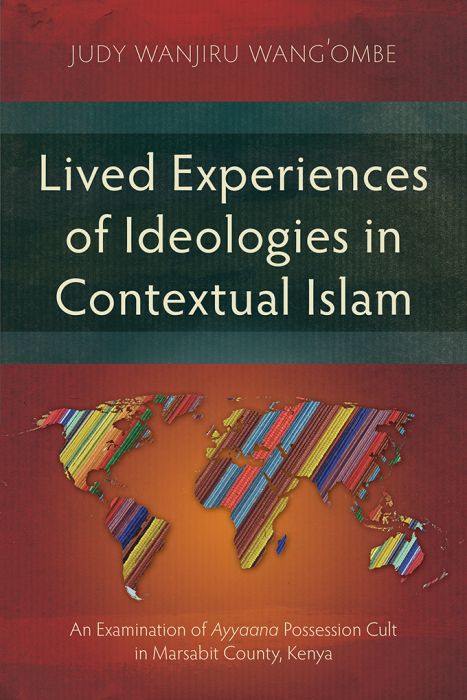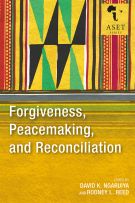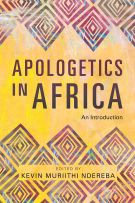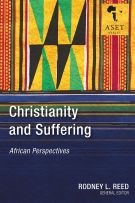| ISBN: | 9781839732324 |
|---|---|
| Format: | Paperback |
| Dimensions (mm): | 229 x 152 x 16 |
| Publication Date: | 29/02/2024 |
| Pages: | 296 |
| Series: | Studies in Religion |
| Language: | English |

Lived Experiences of Ideologies in Contextual Islam
An Examination of Ayyaana Possession Cult in Marsabit County, Kenya
There is a tendency within the study of Islam to prioritize religious ideology over the lived experiences of ordinary Muslims. While affirming the significance of such ideology, Dr. Judy Wanjiru Wang’ombe suggests that it is equally important to understand how Islamic teachings are actually lived out within Muslim communities. Utilizing a cognitive anthropological framework and drawing from qualitative field data, this study examines the phenomenon of spirit possession as experienced by Borana Muslims in Marsabit County, Kenya. Dr. Wang’ombe analyzes the practices and beliefs of the Ayyaana possession cult in light of stipulations provided by official Islamic texts, specifically the Qur’an and Hadith as taught by their Muslim teachers, and explores the prominent gaps that often exist between tenet and practice.
An excellent resource for scholars and practitioners alike, this study enhances anthropological understanding of contextual Islam as practiced in East Africa, while offering insight into local perspectives on the spirit world.
Endorsements
This is an important piece of research – a thorough and thoughtful study of the beliefs and practices of a particular group of Muslims, with a focus on their experience of spiritual powers. Judy Wang’ombe has observed and listened to both leaders and “ordinary ” practitioners of that group, but has also investigated how they relate to their more orthodox Muslim kin, and how the more orthodox Muslim leaders view them. She offers rich insights into motivations and perceptions, and into a complex web of social, medical, family, and spiritual factors.
Ida Glaser, PhD
International Academic Coordinator and Founding Fellow,
Centre for Muslim-Christian Studies, UK
Dr. Judy Wang’ombe’s in-depth study into Borana Muslims’ involvement in the Ayyaana cult unearths their lived experiences of the spirit world. The research findings exhibit the cognitive and epistemological disparities between the official Islamic teacher’s interpretations and the ordinary Borana Muslims’ understanding of the spirit world they experience in everyday life. Thus, this book is a must-read for those looking seriously into Islamic phenomena in a specific cultural context.
C. S. Caleb Kim, PhD
Coordinator of the Center for the Study of Religions,
Institute for the Study of African Realities,
Africa International University, Kenya
It is a privilege to write an endorsement for this excellent study. I especially appreciate Dr. Wang’ombe’s excellent use of literature, including the Qur’an and Hadith, to explain general Islamic views of jinn and spirit possession. While this careful and comprehensive study focuses narrowly on one Muslim group, the way in which she carried out the research serves as a very helpful template for similar research in other contexts. I highly recommend this book.
John Jay Travis, PhD
Affiliate Faculty in Islamic Studies,
Fuller Theological Seminary, California, USA
This pioneering work is based on a solid ethnographic methodology, enriched with analyses of lyrical Ayyaana songs and terminologies, and it offers refreshingly original exploration of the world of spirit management that oscillates between exorcism and adorcism as imagined by diverse religious actors. Students of ethnography, sociology, Islam, and Christian-Muslim relations studies would definitely find this work highly informative and useful in understanding the lived experiences of Muslim Borana in northern Kenya.
Halkano Abdi Wario, PhD
Senior Lecturer in Religious Studies,
Senior Volkswagen Foundation Humanities Research Fellow,
Egerton University, Kenya
Associate Director, Center for Study of Terrorism, Violent Extremism and Radicalization,
HORN International Institute of Strategic Studies, Kenya
Table of Contents
- Abstract
- Acknowledgments
- Arabic Transliteration
- Chapter 1 Background Information to the Study
- Chapter 2 Scholarly Works on Spirits in Islam
- Chapter 3 Research Methodology
- Chapter 4 The Islamic Model of the Spirit World
- Chapter 5 Religiocultural Model of Ayyaana According to Ordinary Borana Muslims in Marsabit County
- Chapter 6 Lived Experiences as Instantiation of Religiocultural Model
- Chapter 7 Comparative Interdisciplinary Analysis and Theory Formulation
- Chapter 8 Summary of Findings and Recommendations
- Chapter 9 Some Missiological Implications for Christian-Muslim Interactions
- Appendix 1 The Borana Calendar
- Appendix 2 Excerpt from a Conversation between a Practitioner and Ayyaana
- Appendix 3 Ashaka’s Experience with Ayyaana
- Appendix 4 References to Jinn in the Hadith (Bukhari and Muslim)
- Appendix 5 Scholars Who Have Studied or Alluded to Ayyaana and the Sheikh
- Hussein Cult
- Glossary of Non-English Words
- Bibliography







